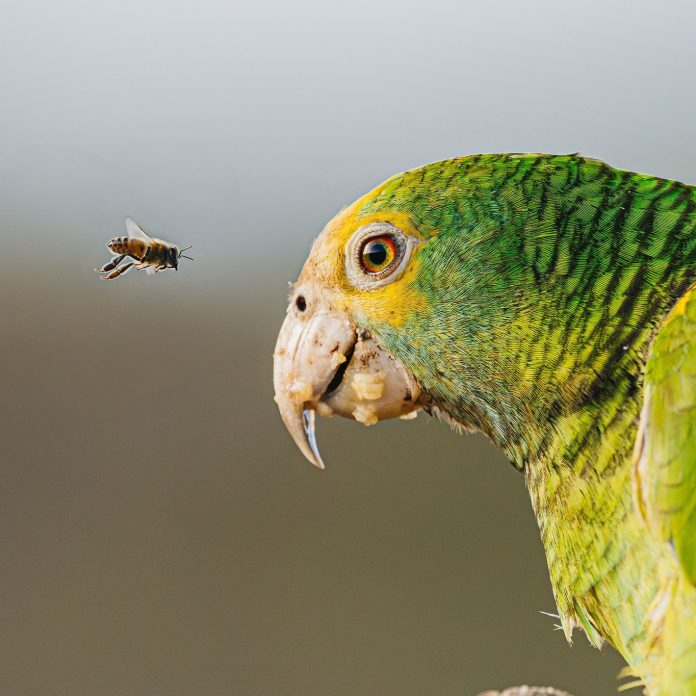(Oranjestad)—Back in January Aruba Today shared the exciting news of the reintroduction of the Yellow-Shouldered Amazon, or locally known as the “Lora”. This week, the Aruba National Park Foundation (FPNA) has provided some updates on the well-being and development.
The FNPNA has announced that their reintroduced ‘Loras’ are flourishing in their natural habitat within Parke Nacional Arikok! Here’s the latest news on their well-being:
- They’re embracing their wild instincts, adapting to munch on mata di yuwana (yuwana plant), cacti, and bonchi di hubada (hubada bean).
- They are spreading their wings, exploring new corners within and beyond the park, displaying confidence in their natural instincts.
- As they settle into their wild lifestyle, they’re becoming less dependent on human presence and feeding.
- They’re more alert to danger, communicating a soft purr that signifies vigilance against potential predators; freezing and remaining motionless like statues.
- With their evolved behaviors, they’ve abandoned chicken-like feeding habits (eating when on the ground), now favoring natural foraging behaviors.
The best way to help ensure these updates keep coming is to follow these simple, yet effective guidelines:
- Refrain from interfering with the Loras.
- Show respect by maintaining a distance and keeping cats and dogs away.
- Avoid feeding or attempting to capture them, as it would violate the laws protecting this species.
If you come across any Lora with one or two (colored) rings on their leg(s), please report this via WhatsApp giving the date/time, location, number of Lora, and ring colors to FPNA’s Wildlife Hotline at +𝟐𝟗𝟕 𝟓𝟗𝟐 𝟒𝟒𝟕𝟔 or email us at 𝐢𝐧𝐟𝐨@𝐚𝐫𝐮𝐛𝐚𝐧𝐚𝐭𝐢𝐨𝐧𝐚𝐥𝐩𝐚𝐫𝐤.𝐨𝐫𝐠. Together, let’s take action and ensure the protection and preservation of our native birds for generations to come.
Picture courtesy by FNPA.




















